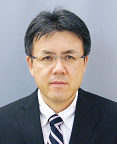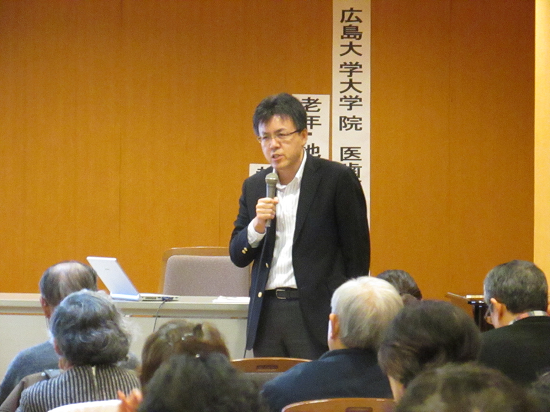【Research Keywords】
occupational therapy with elders, reminiscence, preventive care, frail elderly, dementia, quality of life
【Recent highlights】
In order to support elderly people to live their own life, we have been making efforts towards establishing evidence-based occupational therapy. Currently, as society rapidly ages, counter-measures against depression or dementia are becoming an important topic. Reminiscence has been given notice as one psycho-social approach with the purpose of preventing dementia or maintaining or restoring the psychological adaptability of the elderly, and this approach is being used as a counter-measure against these types of issues.
In response to these types of important issues, we have particularly concentrated our efforts on verifying the effects of reminiscence and conducting research. The goal of these efforts and research are (1) creating a program where reminiscence is useful in the prevention of dementia or depression for local elderly residents and (2) creating an environment where local elderly residents in many different areas can have access to services rather than implementing this approach at only one specific institution that has been outfitted with equipment. Moreover, we are cooperating with related institutions, taking a variety of different actions and are continuing to make efforts to contribute to society.

【Major Papers of the Laboratory】
・Study on effects of life review activities on the quality of life of the elderly: a randomized controlled trial., Psychother Psychosom, 73, 302-311, 20040401
【Education】
The main subjects of the education being offered are the preventive measures, assessments and the approaches related to occupational therapy for the elderly. The lectures are given centrally focused on the relationship of the characteristics of healthy elderly people, of the frail elderly and of elderly people with dementia to their daily lives. Additionally, education is also being given through practicums on the occupational therapy practices of responding to elderly people with dementia, doing group activities, and responding to impairments that affect daily life.
In order to support elderly people, it is important to support their families in addition to supporting the elderly themselves. Because a broad perspective that is closer to matching up with the standpoint of the elderly people who are receiving the care is being demanded in clinical settings, we are working to train the talented people that society demands.
The students who are continuing on into graduate school will select a topic from the following research topics; these students will take two years to get their Master’s degree and an additional three years to get their doctoral degree. In this time, they are expected to be active as research and clinical leaders at the related facilities.
【Research】
1.Studies on the reminiscence for the elderly
2.Studies on preventive care intervention for local elderly residents
3.Studies on maintaining and improving the QOL of the frail elderly and elderly people with impairments including dementia

【Photo explanation】Currently, society is rapidly aging, and accordingly, the maintenance and improvement of elderly people's mental health and countermeasures to prevent dementia are becoming important challenges. In response to these issues, we have become directly involved not only with disseminating our results through our research activities but also with holding lectures related to preventive care for local elderly residents. We are making repeated efforts to make a contribution to society in some way or another. This picture is a scene from a training session for volunteers attempting to practice reminiscence in their community.

 Home
Home
